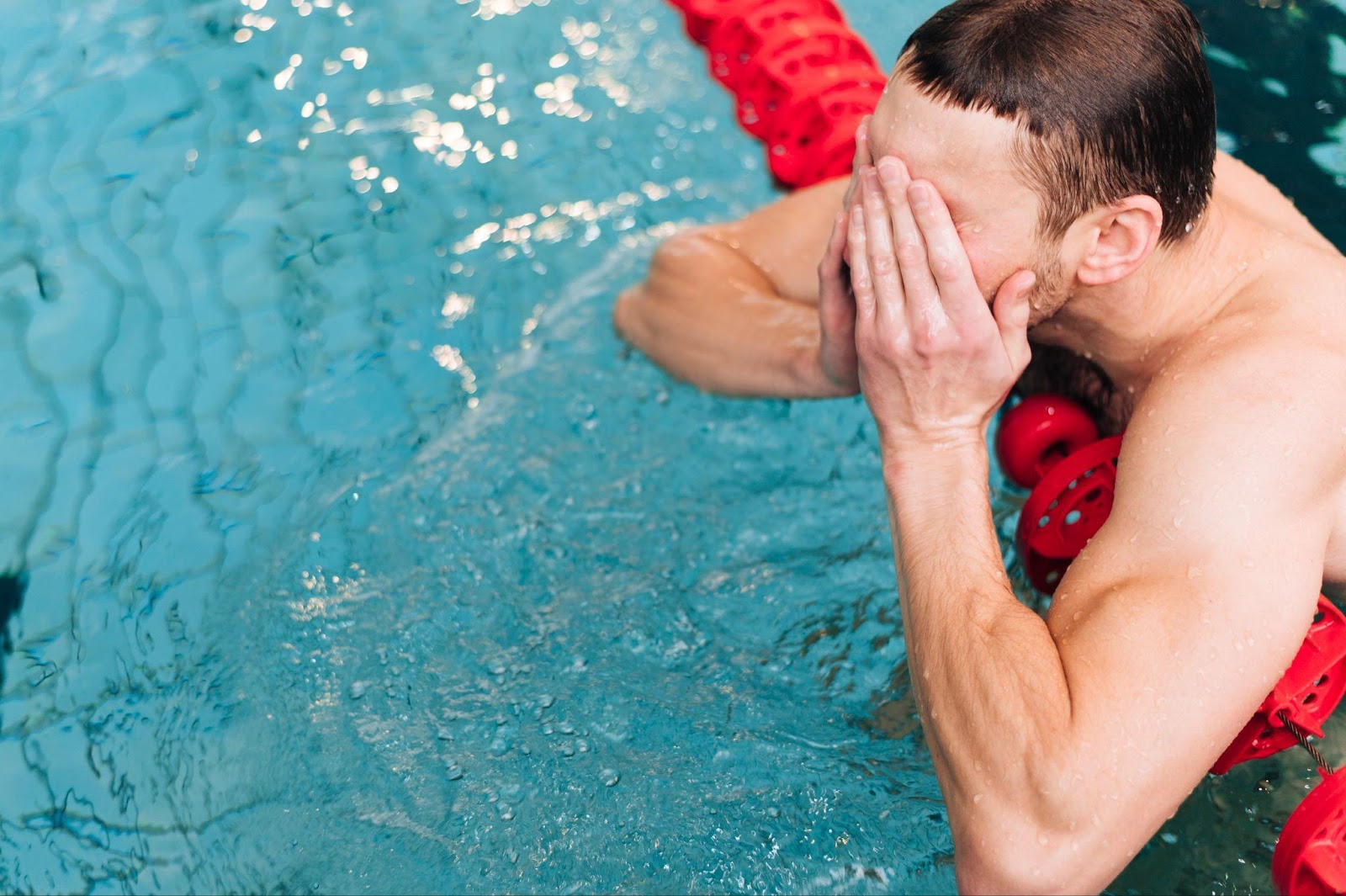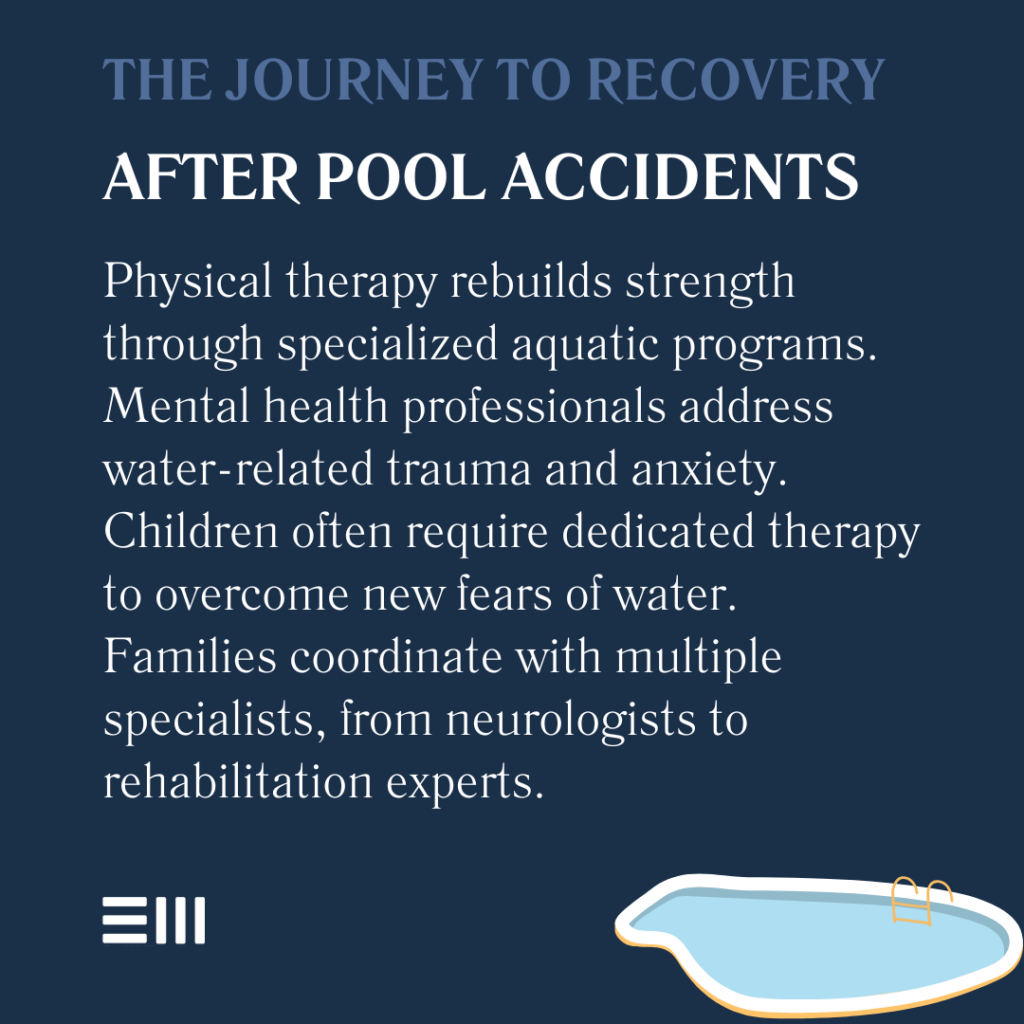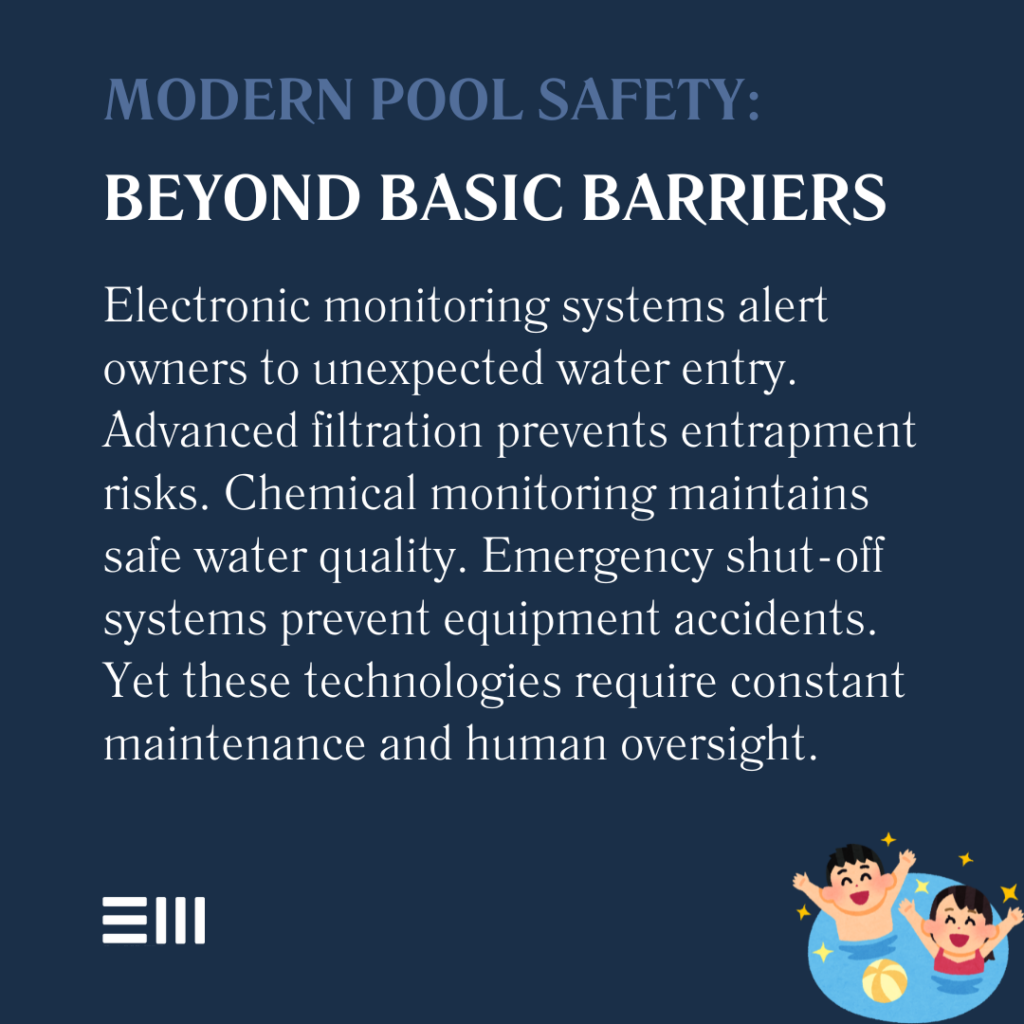
Nearly half of all pool drownings in Alabama since 2018 have involved children. An analysis of data from the Centers for Disease Control reveals that Alabama ranks as the state with the sixth-highest number of childhood drownings.
In the time it takes to answer a phone call or check a text message, a backyard pool can transform from a source of joy to the scene of a family’s worst nightmare.
Beneath the shimmering Alabama sun, these oases of summer fun claim more young lives than any other accident around the home, leaving families grappling with questions that seem to have no answers.
Yet understanding what happens next—from immediate legal steps to long-term recovery options—can make the difference between feeling helpless and taking control of your family’s future.
Understanding Pool Accidents and Liability
Swimming pool accidents involve complex layers of responsibility and legal obligations. Property owners, maintenance companies, and supervisors each play critical roles in preventing tragedy and may bear liability when accidents occur.
Types of Pool-Related Incidents
Pool accidents occur in various settings and circumstances, each with unique safety challenges:
- Diving accidents in shallow water;
- Slip and fall incidents on wet surfaces;
- Entrapment in drains or filters;
- Chemical exposure and burns;
- Inadequate barrier protection;
- Lack of proper supervision;
- Faulty pool equipment;
- Electrical hazards;
- Improper depth markings; and
- Pool toy and flotation device failures.
Understanding these common scenarios helps identify potential hazards and establish liability in accident cases.
Property Owner Responsibilities
Pool owners must maintain specific safety standards to protect users:
- Regular maintenance and inspection;
- Proper fencing and barriers;
- Clear safety signage;
- Emergency equipment availability;
- Chemical balance monitoring;
- Adequate lighting;
- Proper depth markers;
- Access restriction measures;
- Updated permits and inspections; and
- Emergency response plans.
These responsibilities form the foundation of pool safety and legal compliance in Alabama.
Legal Rights After Pool Accidents
Understanding your legal rights after a pool accident helps ensure proper compensation for injuries and losses:
Types of Compensation Available
Various forms of compensation may be available to accident victims:
- Medical treatment expenses;
- Rehabilitation costs;
- Lost wages and income;
- Pain and suffering;
- Emotional trauma;
- Long-term care needs;
- Property damage;
- Funeral expenses;
- Loss of companionship; and
- Future medical needs.
Each type of compensation addresses different aspects of recovery and loss, creating a comprehensive approach to damages.
Establishing Negligence
Proving negligence in pool accident cases requires several key elements:
- Duty of care documentation;
- Evidence of safety violations;
- Maintenance records review;
- Witness statements;
- Expert testimony;
- Video surveillance;
- Incident reports;
- Previous violation history;
- Safety measure documentation; and
- Supervision protocols.
These elements work together to build a strong case for compensation.

Common Questions About Pool Accident Claims in Alabama
Alabama families facing the aftermath of pool accidents often seek clarity about their legal options.
These answers address frequent concerns.
Who Can Be Held Liable for a Pool Accident?
Depending on the accident’s circumstances, multiple parties may share responsibility, including property owners, maintenance companies, manufacturers, and supervisors.
What if the Accident Happened at a Public Pool?
Claims against public entities involve special procedures and shorter notice requirements, though valid claims can still be pursued.
If an accident happens at a public pool in Alabama, filing a claim against the city or municipality involves special steps.
You must submit a formal notice of claim, often within six months, detailing the incident, injuries, and damages.
Public entities have legal immunities, but negligence—like poor maintenance or lack of supervision—can still lead to liability. After filing, the government may investigate, and you may need to resolve administrative processes before suing.
How Are Near-Drowning Incidents Handled?
Near-drowning cases often involve long-term medical needs and require careful documentation of ongoing care requirements.
Taking Action After a Pool Accident
The path forward after a swimming pool accident requires careful attention to legal details and evidence preservation:
- Gather incident documentation;
- Photograph accident scene;
- Collect witness information;
- Secure medical records;
- Document safety violations;
- Preserve video evidence;
- Report to proper authorities;
- Track ongoing expenses;
- Document recovery progress; and
- Maintain communication records.
These steps create a strong foundation for your legal claim.
Modern Pool Safety Technology and Failures
Modern swimming pools incorporate sophisticated safety systems, from automatic covers to advanced filtration technology.
However, these systems can create a false sense of security. Automatic pool covers may malfunction, leaving pools exposed. Electronic monitoring systems can fail without proper maintenance. Even the most advanced safety features require human oversight and regular testing to remain effective.
Technological advancements in pool safety have also introduced new complexities in liability cases. Multiple parties may share responsibility when automated systems fail—from manufacturers and installers to maintenance providers and property owners.
Understanding the interaction between these various components and responsible parties becomes crucial in establishing liability.

The Impact of Near-Drowning Incidents
Near-drowning events often leave families facing long-term challenges that extend far beyond the initial incident. Survivors may require extensive rehabilitation, including physical therapy, occupational therapy, and cognitive rehabilitation.
The financial burden of ongoing care can overwhelm families, particularly when considering lifetime care needs.
Brain injury from oxygen deprivation can result in various levels of disability, requiring home modifications, specialized equipment, and constant care.
Families often must restructure their entire lives, with one parent potentially leaving work to become a full-time caregiver. The emotional trauma affects not just the victim but siblings, parents, and other family members who witnessed the incident.
Seasonal and Environmental Factors
Alabama’s climate creates unique challenges for pool safety. The extended swimming season means longer exposure to risks, while sudden storms can create hazardous conditions.
Poor visibility during dawn and dusk hours – often popular swimming times during hot summers – increases accident risks. Temperature fluctuations can affect chemical balance and equipment functionality, requiring more frequent monitoring and maintenance.
Hurricane season brings additional concerns, as storm debris can compromise pool barriers and damage safety equipment.
Standing water around pools after storms can obscure pool edges and create slip hazards. These environmental factors must be considered in both prevention efforts and liability determinations.
Commercial Pool Operations and Liability
Commercial pools in Alabama, including those at hotels, apartments, and water parks, must follow state and local regulations to ensure safety. These include proper fencing, clear safety signage, and compliance with Alabama Department of Public Health (ADPH) standards for water quality and sanitation.
Certified lifeguards are often required, and their training must meet emergency response standards. Operators must also maintain records of inspections, chemical levels, and safety equipment to comply with ADPH guidelines.
Liability arises when operators fail to meet these safety standards, such as inadequate training, unsafe premises, or poor supervision. Seasonal staff turnover increases risks, making regular training and strict protocols essential to prevent accidents and reduce legal exposure.
High turnover in seasonal pool staff can result in gaps in safety coverage or inexperienced personnel handling emergency situations. Commercial operators must balance public access with stringent safety measures.
Protecting Your Rights and Future
Swimming pool accidents change lives in moments, but you don’t have to navigate the aftermath alone. Our experienced team understands the complexities of pool accident cases and the impact on Alabama families.
Contact us today for a confidential consultation about your pool accident case. We’ll evaluate your situation, explain your options, and help you make informed decisions about moving forward.
Can't find what you're looking for? Search our site below.










